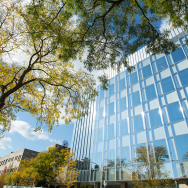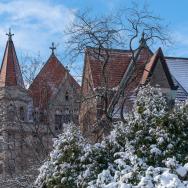Two scientists with the University of Chicago Pritzker School of Molecular Engineering have been selected for the U.S. Department of Energy’s Early Career Research Program. The awardees will receive five-year grants to create new quantum and electrochemistry technologies.
“Supporting talented researchers early in their career is key to fostering scientific creativity and ingenuity within the national research community,” said Asmeret Asefaw Berhe, director of the Office of Science at the U.S. Department of Energy. “Dedicating resources to these focused projects led by well-deserved investigators helps maintain and grow America’s scientific skill set for generations to come.”

Chong Liu
Chong Liu is a Neubauer Family Assistant Professor at the Pritzker School of Molecular Engineering, specializing in materials science and electrochemistry.
She will receive $750,000 over five years for her research into the separation and extraction of rare-earth elements.
Her work centers on the design of optimal solid-state electrode materials which can be used to separate valuable elements from water without the need for harsh solvents. If successful, Liu’s process would offer an inexpensive and environmentally friendly method to boost supplies of critical metals.

Shuolong Yang
Shuolong Yang is an assistant professor at the Pritzker School of Molecular Engineering researching advanced quantum systems.
He will receive $750,000 over five years for his work on a new type of ultrafast spectroscopy which is able to disentangle electronic states on the atomic level, layer by layer. This new technique will be applied to topological superconductors and other quantum materials, offering insights critical to the development of quantum technology.
Yang’s broader work focuses on understanding the fundamental tenants of quantum physics, including an effort to conclusively verify the existence of “angel” particles through experimentation.








